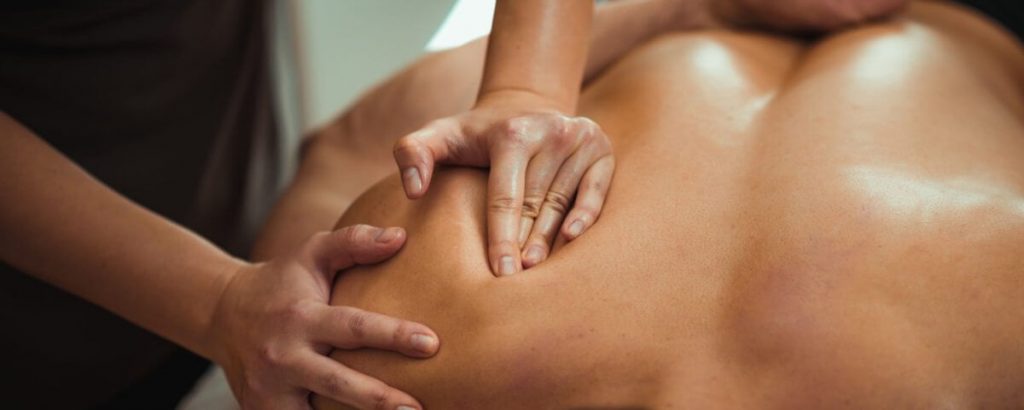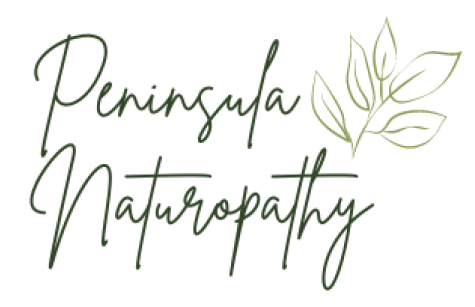What is Myotherapy & how can it benefit health?

Myotherapy is a specialized branch of physical therapy that focuses on the treatment and management of musculoskeletal pain, dysfunction, and injury. It employs a combination of hands-on techniques, such as massage, trigger point therapy, stretching, and joint mobilization, to target and alleviate pain. Myotherapists are trained to identify the root cause of musculoskeletal issues and offer personalized treatment plans for long-lasting relief.
Derived from the Greek word “myo,” meaning muscle, myotherapy primarily addresses muscle pain and associated soft tissue problems. However, it also encompasses the broader mechanics of the body, including ligaments, tendons, and the nervous system. This makes it an ideal treatment option for a wide range of conditions, including everyday aches, chronic pain, sports injuries, postural issues, pregnancy massage and relaxation massage.
How Does Myotherapy Work?
Myotherapy addresses muscle imbalances, pain, and dysfunctions that stem from a variety of factors, such as injury, overuse, poor posture, or emotional stress. The goal is not only to treat symptoms but to correct underlying causes and prevent recurrence. To do this, myotherapists use several therapeutic techniques, including:
- Massage Therapy: Massage helps increase blood flow, relax muscles, and reduce pain and stiffness in targeted areas.
- Trigger Point Therapy: Trigger points are tight bands of muscle that can refer pain to other areas. Releasing these points relieves tension and reduces pain in both the trigger point and surrounding areas.
- Dry Needling: Fine needles are inserted into trigger points to stimulate healing and release muscle knots, reducing pain and improving function.
- Cupping Therapy: A technique where special cups are placed on the skin to create suction, which helps to increase blood flow, release muscle tension, and promote tissue repair. Cupping can also help break up scar tissue and adhesions, making it a beneficial complement to other forms of myotherapy.
- TENS Machine (Transcutaneous Electrical Nerve Stimulation): A TENS machine uses electrical impulses to stimulate nerve fibers, reducing pain by blocking pain signals and promoting the release of endorphins. Myotherapists may use TENS to help alleviate pain in acute or chronic conditions, particularly where manual therapy alone may not be enough.
- Joint Mobilization: Gently moving joints within their natural range of motion to restore flexibility and relieve pain.
- Corrective Exercises: Tailored exercises that strengthen weak muscles and improve overall function, helping to maintain long-term results and prevent future injuries.
- Myofascial Release: A hands-on technique that targets the fascia (the connective tissue surrounding muscles) to relieve tension and enhance mobility.
Common Conditions Treated by Myotherapy
Myotherapy is highly effective in treating a range of musculoskeletal issues, such as:
- Back and Neck Pain: Whether due to poor posture, injury, or prolonged sitting, myotherapy can relieve tension and improve function in these areas.
- Headaches and Migraines: Often caused by tight muscles in the neck, shoulders, and jaw, myotherapy can help reduce the frequency and intensity of headaches by addressing muscular tension.
- Sports Injuries: From sprains and strains to overuse injuries, myotherapy aids in faster recovery, improved mobility, and injury prevention.
- Postural Problems: Long periods of sitting or improper posture can lead to chronic pain. Myotherapy helps correct postural imbalances and prevent long-term complications.
- Joint Pain: Conditions like arthritis or joint instability can cause significant discomfort. Myotherapy helps manage joint pain by improving muscle function and reducing the load on the joints.
- Sciatica: Myotherapy can alleviate the pain caused by compression of the sciatic nerve by releasing muscle tightness that exacerbates the condition.
- Repetitive Strain Injuries (RSI): Conditions like carpal tunnel syndrome and tennis elbow, often resulting from repetitive motions, can be treated effectively with myotherapy.
The Benefits of Myotherapy
- Pain Relief: The most immediate benefit of myotherapy is the relief of acute and chronic pain. By addressing the root cause of muscle and soft tissue issues, myotherapy offers long-lasting relief rather than just masking the pain.
- Improved Mobility and Flexibility: Tight muscles and restricted joints can reduce mobility. Myotherapy helps restore range of motion and flexibility, which is particularly valuable for athletes, those recovering from injuries, or individuals with chronic pain.
- Stress Reduction: Chronic pain and muscle tension can lead to heightened stress and anxiety. Myotherapy not only eases physical tension but also promotes relaxation and mental well-being by stimulating the release of endorphins and lowering cortisol levels.
- Enhanced Recovery: Myotherapy promotes faster recovery from injuries or surgeries by increasing blood flow and supporting the healing of damaged tissues. The addition of techniques like cupping or dry needling can accelerate this process by further stimulating tissue repair.
- Prevention of Future Injuries: Regular myotherapy can help correct muscle imbalances and weaknesses, reducing the risk of future injuries. By providing corrective exercises and education on posture and movement, myotherapists help ensure long-term results.
- Postural Correction: Many people suffer from chronic pain due to poor posture. Myotherapy can help correct imbalances that contribute to poor posture, relieving pain in the back, shoulders, and neck.
- Chronic Pain Management: For individuals with conditions like fibromyalgia, arthritis, or chronic back pain, myotherapy offers ongoing relief by targeting the muscular and soft tissue components of chronic conditions.
Is Myotherapy Right for You?
If you’re experiencing musculoskeletal pain, whether due to injury, overuse, or chronic conditions, myotherapy may provide the solution you need. With a combination of hands-on techniques, including cupping therapy, TENS machines, and dry needling, myotherapy offers a personalized, holistic approach to treating pain and restoring function.
Whether you’re an athlete looking to enhance performance, an office worker dealing with poor posture, or someone living with chronic pain, myotherapy can help you find relief and achieve better long-term health outcomes. It not only addresses the immediate symptoms but also aims to treat the root cause of pain, providing both immediate relief and sustainable wellness.
